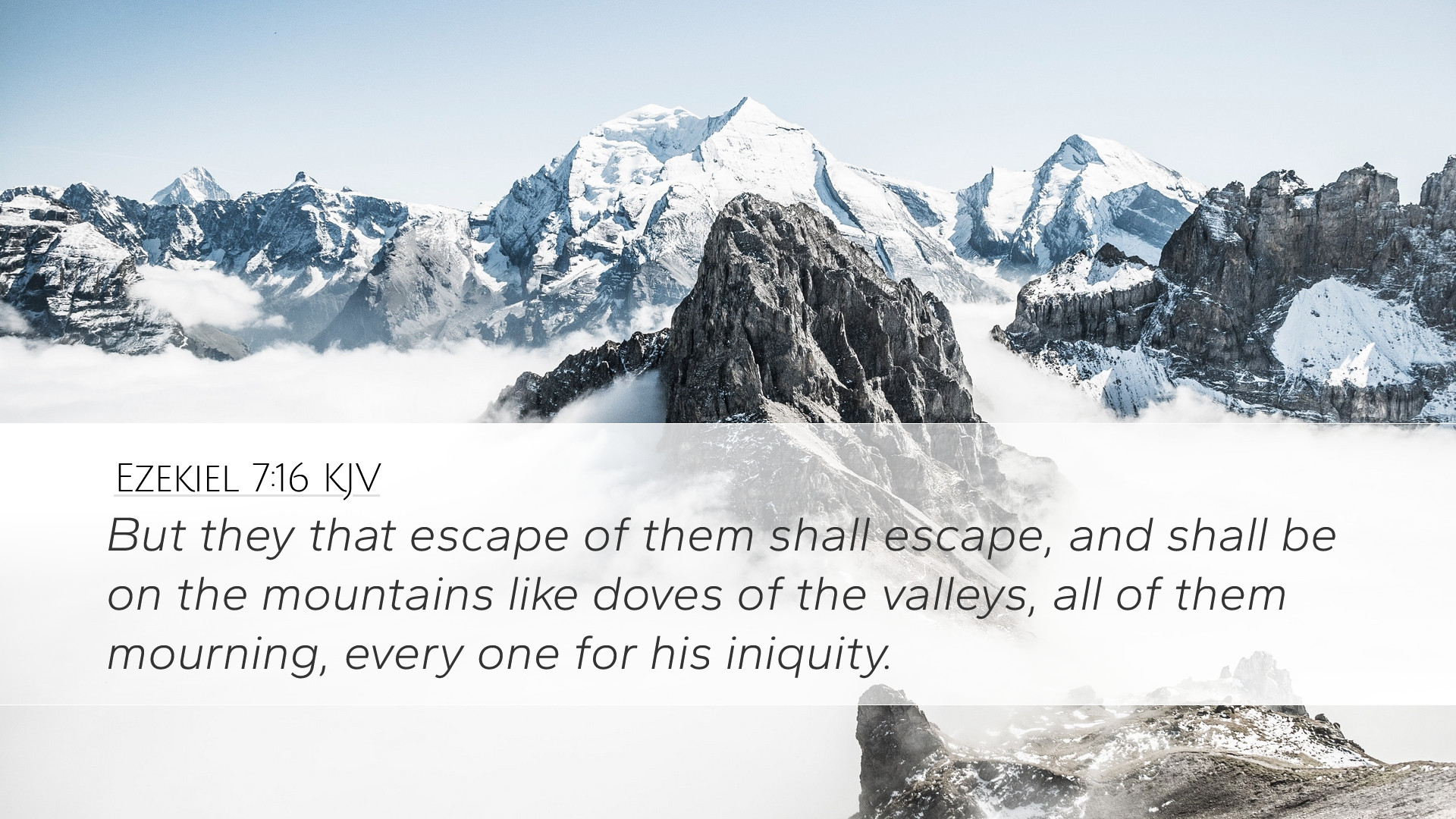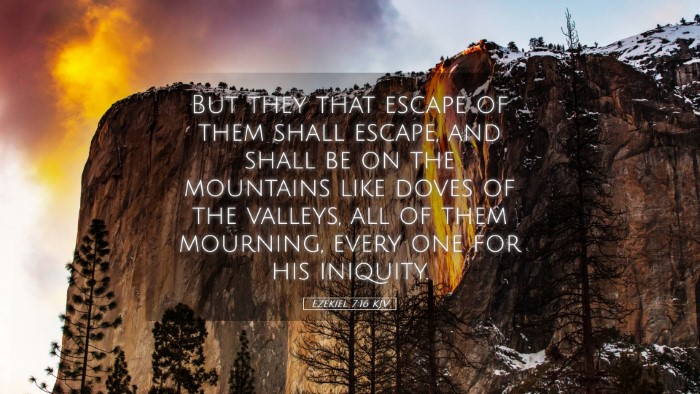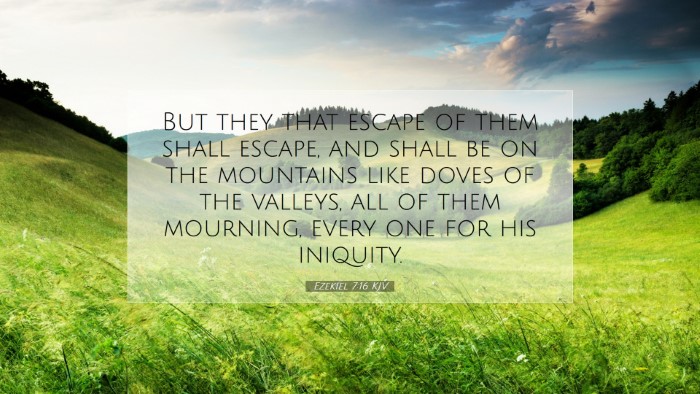Ezekiel 7:16 - Commentary
Ezekiel 7:16 states, "But those that escape of them shall escape, and shall be on the mountains like doves of the valleys, all of them mourning, every one for his iniquity." This verse offers a poignant glimpse into the realities of judgment and the somber condition of those left behind after calamity. Below is a combined commentary drawn from several public domain sources, which explores various aspects of this verse.
Contextual Background
The context of Ezekiel 7 is one of impending judgment upon Israel. This chapter is a precursor to the siege and subsequent destruction of Jerusalem. Ezekiel, acting as a prophet, warns the people about the consequences of their persistent sinfulness and disobedience to God. The gravity of the situation is emphasized by God's pronouncement that judgment is determined; there is no turning back.
Interpretative Themes
- Isolation of Judgment: Matthew Henry notes that the emphasis on the escapees highlights the reality of individual responsibility in crisis. While some may escape destruction, they will carry their grief and guilt with them.
- Symbolism of Mourning Doves: The imagery of doves mourning on the mountains signifies a return to a state of mourning, akin to the mourning of Noah's dove. Adam Clarke elaborates that these doves represent those who, through repentance, realize the depth of their sin.
- Inescapable Consequences: Albert Barnes remarks on the phrase "like doves of the valleys" indicating a vulnerability of those who escape; they are bereft and vulnerable, mourning not just for their sins but also the lost state of their nation.
Theological Implications
This verse raises significant theological questions regarding divine judgment and mercy. It showcases a dual aspect of God's character: His justice in dealing with sin and His mercy shown to those who, despite their past, seek redemption.
Divine Justice
God’s justice is portrayed vividly throughout the chapter. The coming judgment is described in vivid detail; it speaks to the inevitability of consequences for sin. Henry's commentary emphasizes that God's judgments are often both restorative and punitive, meant to stir the hearts of the people toward confession and repentance.
Human Responsibility
The escapees in this context reflect the notion that some will survive the calamities and will be held accountable for their actions. Clarke emphasizes that survival in this scenario does not equate to immunity from guilt; rather, it serves as an occasion for deep remorse and reflection on personal failures.
Pastoral Applications
- Call to Repentance: Pastors are encouraged to use this text as a catalyst for preaching repentance. The image of mourning illustrates the weight of sin and the necessity for seeking God’s forgiveness.
- Encouragement for the Mourning: For congregations facing personal or corporate grief, this text reminds that mourning can lead to healing and restoration. There is a space for lamentation that can lead to deeper faith and reliance on God's mercies.
- Hope in Judgment: This verse shows that even in judgment, there is a remnant. Pastoral outreach should emphasize that while judgment is a reality, so is the opportunity for grace and renewal through Christ.
Conclusion
Ezekiel 7:16 serves as a profound reminder of the balance between judgment and mercy, reflecting God's desire for repentance and restoration. The commentary from Henry, Barnes, and Clarke collectively points to essential themes of human responsibility, the reality of mourning, and the hope found through genuine contrition. As pastors, students, and theologians study this verse, there is much to glean about the nature of sin, the consequences that follow, and the eternal hope provided through a relationship with God.


